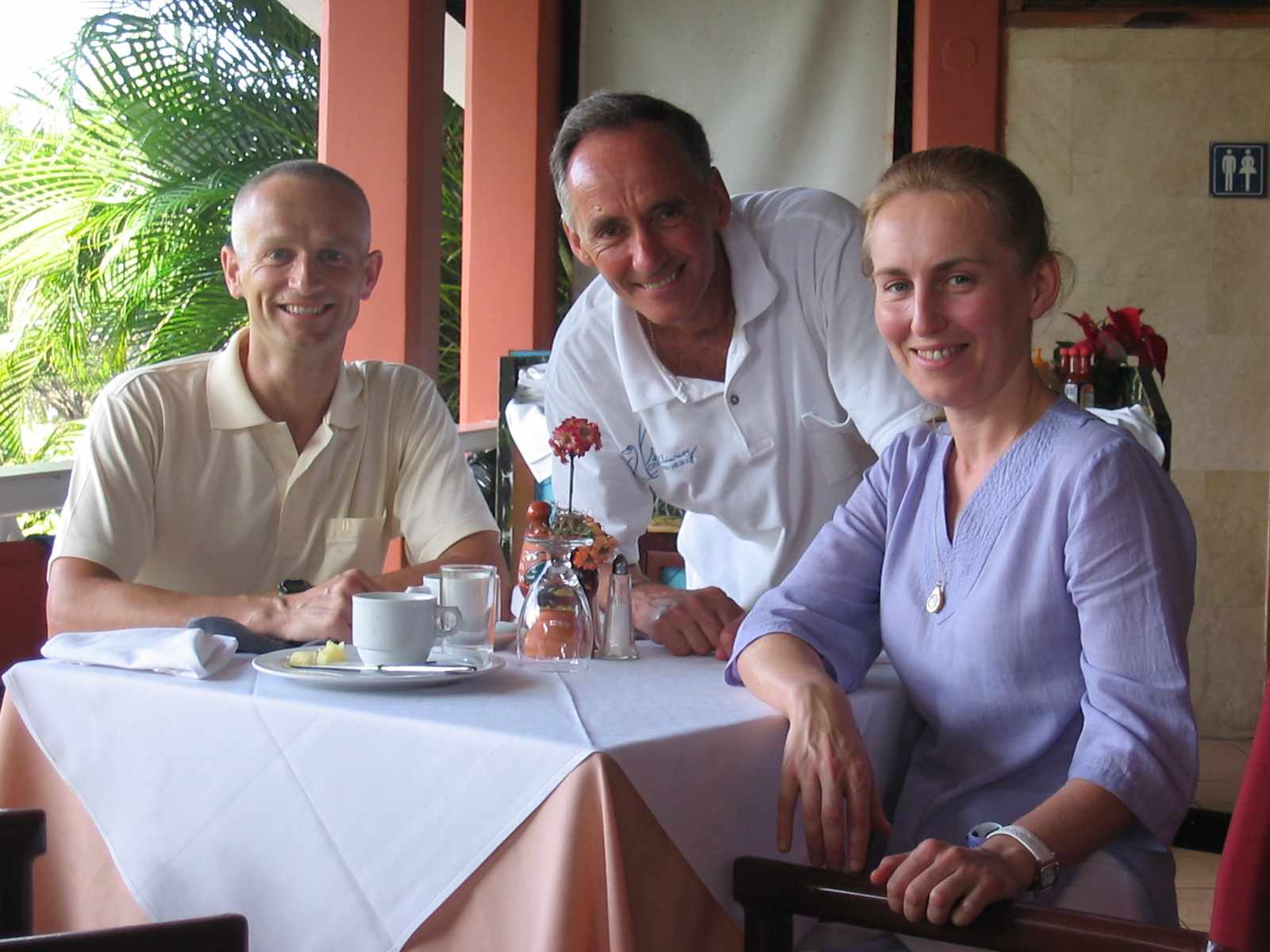At your workplace – a free ‘Learn Meditation’ workshop.
Meditation – an effective and simple answer to workplace stress – is fast becoming a mainstream social skill. Auckland’s Sri Chinmoy Centre is sponsoring an initiative to introduce these skills and to offer free workplace introductory sessions to ten or more people as a free community service.
Course instructor Jogyata Dallas offers the Hour of Peace lunchtime introduction to meditation in company offices, providing an overview of the benefits of meditation practice and teaching several guided techniques for employees and staff to experience firsthand.
So what does ‘An Hour of Peace’ entail?
Jogyata: I spend an hour at lunchtime, or any suitable time, with company employees in their own workplace, talk a little about the benefits of meditation, then teach a couple of exercises to get everyone started. I introduce the ABC’s and answer the basic questions about stilling the mind, how long, how often, principle exercises to work with. I also encourage employers to have a weekly staff time together, even a dedicated practice time and space, and quite a few big companies are now doing this. It’s quite simple yet very effective – every HR manager knows the virtues of having happy staff. Meditation today is becoming established and popular in mainstream society, in our workplace, our schools and personal lives.
Why meditation?
Jogyata: Well, meditation and mindfulness are fast becoming catch phrases these days, an acknowledgement of the need to observe and calm the mind in a hectic modern world where stress, clutter and high velocity lifestyles are placing great demands on our composure. Happiness and health are fundamental in any business environment and meditation recognises this, and that a stress-free and happy mind are major factors in our productivity. Meditation can help to create the optimum conditions for vitality and efficiency.
What are the essentials of meditation?
 Jogyata: Our minds have never been so overloaded as they are today. The many techniques employed in learning meditation share a common theme – harnessing and concentrating the power of the mind. The mind is like the waves on the surface of the lake, constantly moving – meditation stills this restlessness so that we can see down into the lake’s depths, the quiet inner spaces. By-products and benefits of this effort are numerous – an ability to focus and concentrate quickly, enhanced memory, a stillness in the meditating mind which enables us to access deeper, intuitive, creative and inspirational parts of our being. Silence and stillness are immensely potent, creative.
Jogyata: Our minds have never been so overloaded as they are today. The many techniques employed in learning meditation share a common theme – harnessing and concentrating the power of the mind. The mind is like the waves on the surface of the lake, constantly moving – meditation stills this restlessness so that we can see down into the lake’s depths, the quiet inner spaces. By-products and benefits of this effort are numerous – an ability to focus and concentrate quickly, enhanced memory, a stillness in the meditating mind which enables us to access deeper, intuitive, creative and inspirational parts of our being. Silence and stillness are immensely potent, creative.
Question: And the principal benefits?
Jogyata: They’re numerous – a reduction in stress levels, a deepening sense of purpose, better sleep, renewed vitality and energy, a growing self-confidence and inner poise. Further into our practice there’s the slow awakening of our spiritual nature as well, and you’ll wonder ‘Why am I feeling more peaceful, happy, why am I getting on better with everyone?’ As our practice deepens the benefits flow out into all of life, into how we understand and deal with each passing moment – it’s a life skill that changes our existence from the inside out.
Question: You mention happiness as a real positive…
Jogyata: Yes, most of our efforts at happiness rely upon external things that are often unreliable and changeable…like better jobs, new relationships, material things, travel plans and so forth. But our endless search for some ideal combination of these doesn’t ever solve our anxieties or discontent, and a lifetime of exploring always brings us back to ourselves as the source of happiness. We will never be satisfied by only the ephemeral things of the world. Happiness is more an inner achievement – simplicity, calm mind, desirelessness, a clear sense of purpose that gives our life meaning and direction.
Yes, that seems a common theme in the different approaches to meditation, happiness as a state of mind above everything else.
Meditation explores the inner path to happiness and gradually brings about a desireless contentment that has nothing to do with where you are, who you are with, what you own…it’s an inner achievement, the reconnecting to our deeper nature that many of us have forgotten even exists. With practice, meditation brings inner happiness, a life free of stress and anxiety.
Question: Why is ‘An Hour of Peace’ free?
Jogyata: I’m a member of a well-known meditation group, the Sri Chinmoy Centre, which has been offering free meditation courses for almost 40 years around New Zealand. Our founder, the late Sri Chinmoy, saw meditation as an important aspect in fostering a more peaceful world – he asked that we share our own love of meditation freely, that money should never disadvantage anyone from learning. I like this very much!
Question: Any final comments?
Jogyata: If you’re keen to try this at your workplace, give me a call, there’s no cost involved and it’s very well received and practical. I wrote an online aid to meditation – you could make a start by having a look there.
Interested: contact Jogyata Dallas at 0221887432 or use the form below
"*" indicates required fields

